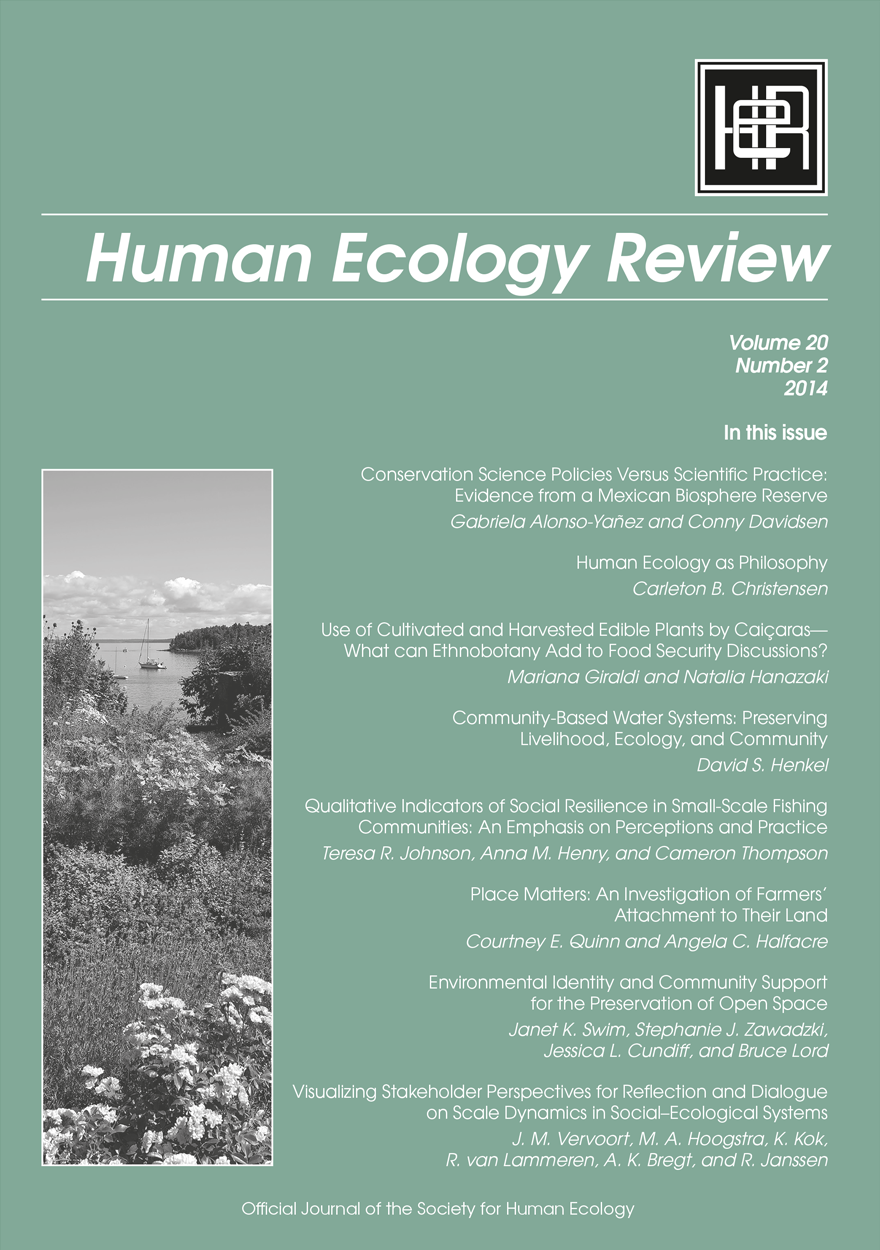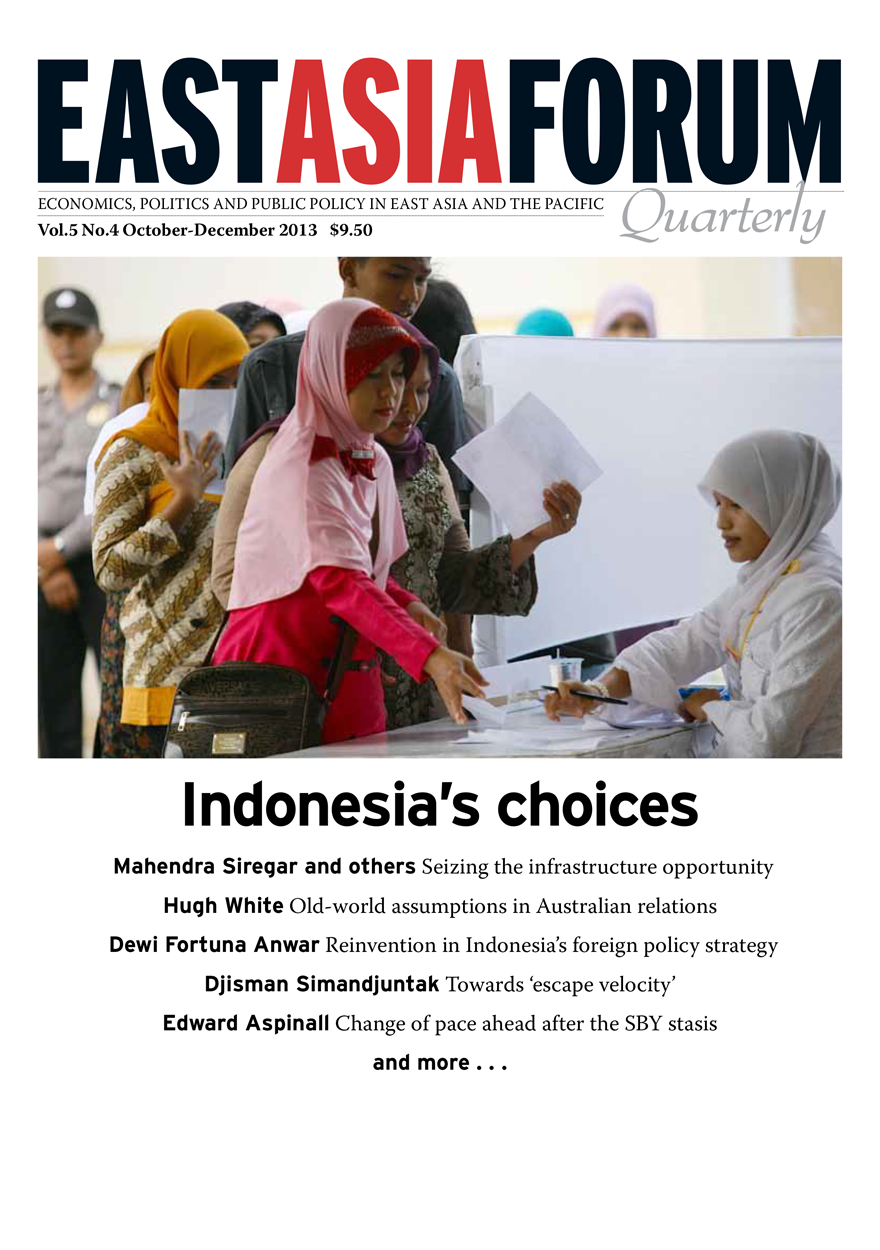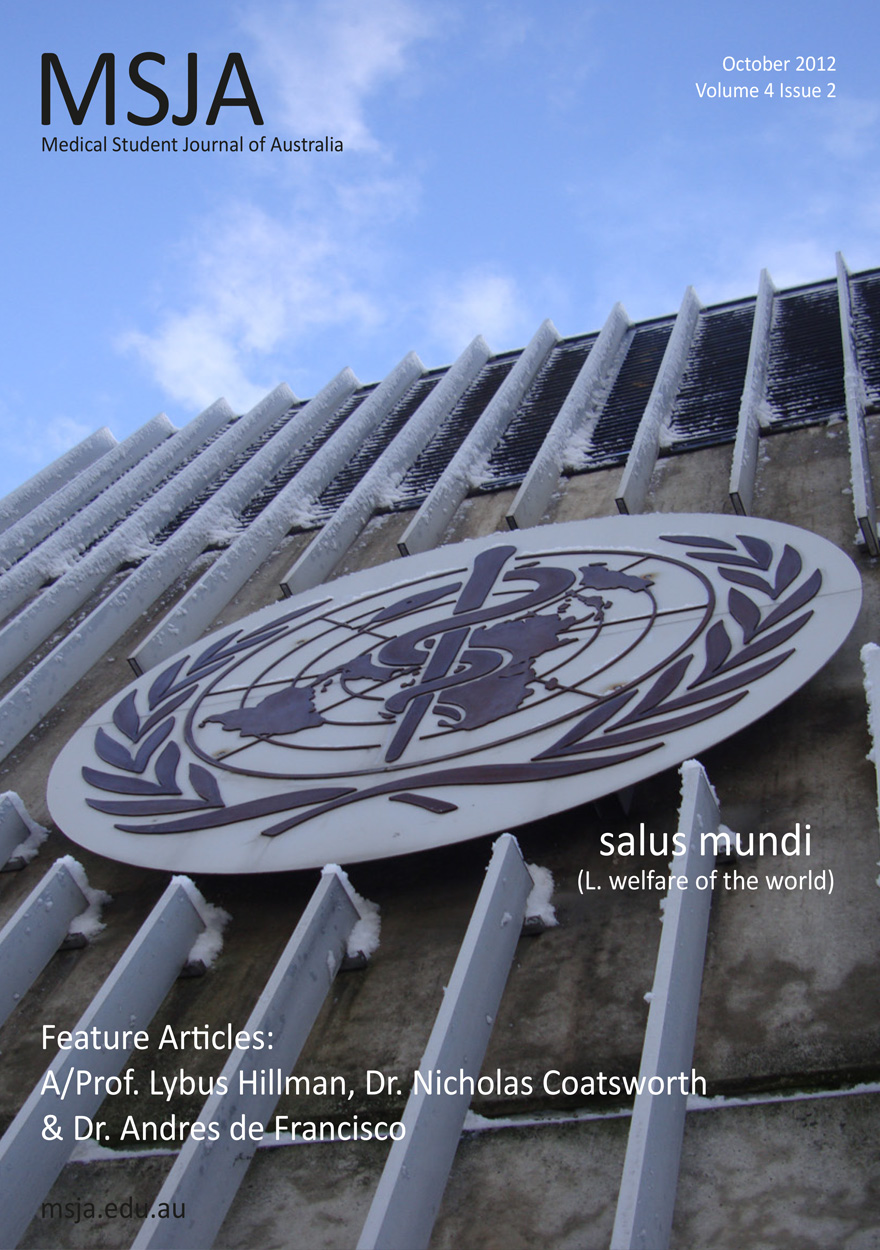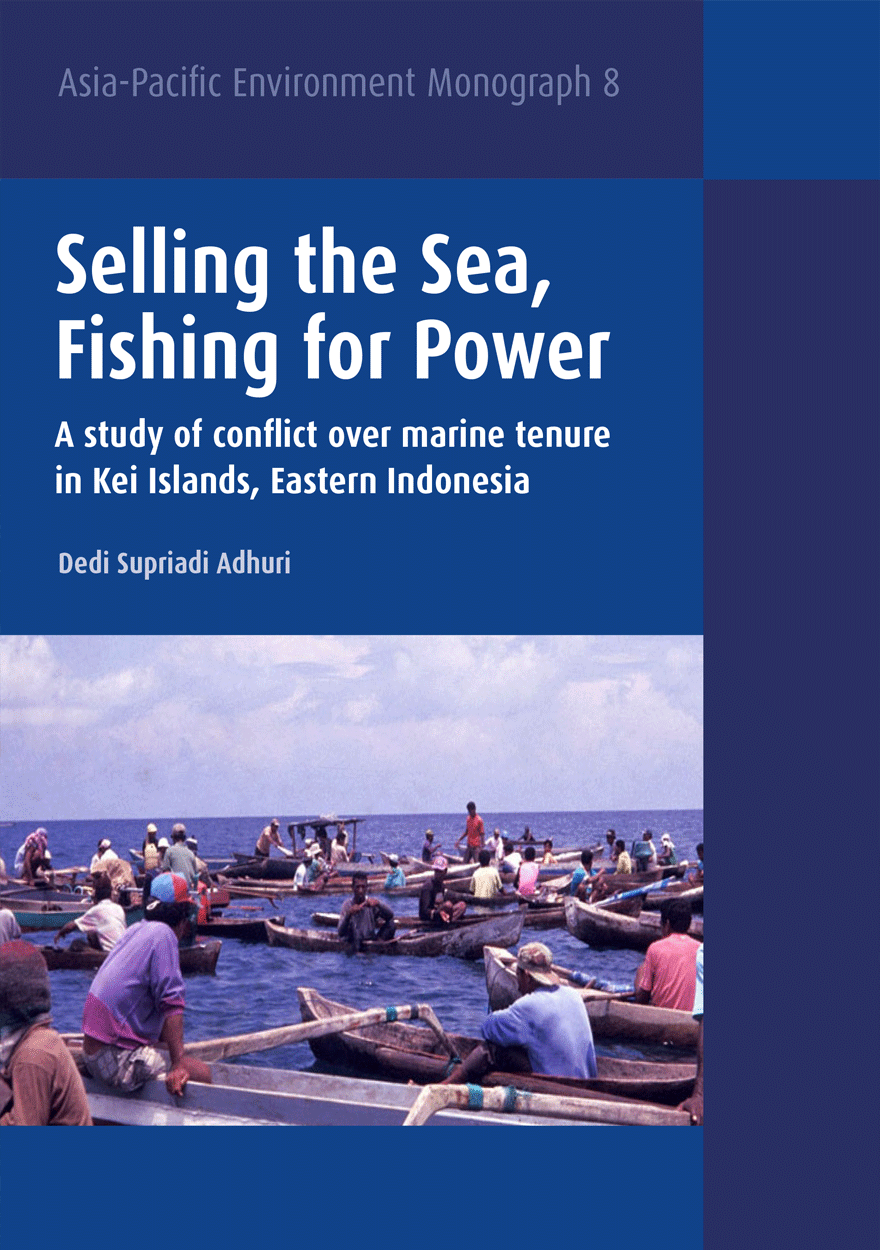Search titles
Displaying results 71 to 80 of 103.

Human Ecology Review: Volume 20, Number 2 »
Publication date: September 2014
Human Ecology Review is a semi-annual journal that publishes peer-reviewed interdisciplinary research on all aspects of human–environment interactions (Research in Human Ecology). The journal also publishes essays, discussion papers, dialogue, and commentary on special topics relevant to human ecology (Human Ecology Forum), book reviews (Contemporary Human Ecology), and letters, announcements, and other items of interest (Human Ecology Bulletin). Human Ecology Review also publishes an occasional paper series in the Philosophy of Human Ecology and Social–Environmental Sustainability.
Download for free
Not available for purchase

Australia and Latin America »
Challenges and Opportunities in the New Millennium
Edited by: Barry Carr, John Minns
Publication date: August 2014
This is a good time to reflect on opportunities and challenges for Australia in Latin America. Impressive economic growth and opportunities for trade and investment have made Latin America a dynamic area for Australia and the Asia Pacific region. A growing Latin American population, Australia’s attractiveness to Latin American students, a fascination with the cultural vibrancy of the Americas and an awareness of Latin America’s increasingly independent stance in politics and economic diplomacy, have all contributed to raising the region’s profile. This collection of essays provides the first substantial introduction to Australia’s evolving engagement with Latin America, identifying current trends and opportunities, and making suggestions about how relationships in trade, investment, foreign aid, education, culture and the media could be strengthened.

Future-Proofing the State »
Managing Risks, Responding to Crises and Building Resilience
Publication date: May 2014
This book focuses on the challenges facing governments and communities in preparing for and responding to major crises — especially the hard to predict yet unavoidable natural disasters ranging from earthquakes and tsunamis to floods and bushfires, as well as pandemics and global economic crises.
Future-proofing the state and our societies involves decision-makers developing capacities to learn from recent ‘disaster’ experiences in order to be better placed to anticipate and prepare for foreseeable challenges. To undertake such futureproofing means taking long-term (and often recurring) problems seriously, managing risks appropriately, investing in preparedness, prevention and mitigation, reducing future vulnerability, building resilience in communities and institutions, and cultivating astute leadership. In the past we have often heard calls for ‘better future-proofing’ in the aftermath of disasters, but then neglected the imperatives of the message.
Future-Proofing the State is organised around four key themes: how can we better predict and manage the future; how can we transform the short-term thinking shaped by our political cycles into more effective long-term planning; how can we build learning into our preparations for future policies and management; and how can we successfully build trust and community resilience to meet future challenges more adequately?

Fire Mountains of the Islands »
A History of Volcanic Eruptions and Disaster Management in Papua New Guinea and the Solomon Islands
Authored by: R. Wally Johnson
Publication date: December 2013
Volcanic eruptions have killed thousands of people and damaged homes, villages, infrastructure, subsistence gardens, and hunting and fishing grounds in Papua New Guinea and the Solomon Islands. The central business district of a town was destroyed by a volcanic eruption in the case of Rabaul in 1994. Volcanic disasters litter not only the recent written history of both countries—particularly Papua New Guinea—but are recorded in traditional stories as well. Furthermore, evidence for disastrous volcanic eruptions many times greater than any witnessed in historical times is to be found in the geological record. Volcanic risk is greater today than at any time previously because of larger, mainly sedentary populations on or near volcanoes in both countries. An attempt is made in this book to review what is known about past volcanic eruptions and disasters with a view to determining how best volcanic risk can be reduced today in this tectonically complex and volcanically threatening region.

East Asia Forum Quarterly: Volume 5, Number 4, 2013 »
Publication date: December 2013
East Asia Forum Quarterly grew out of East Asia Forum (EAF) online, which has developed a reputation for providing a platform for the best in Asian analysis, research and policy comment on the Asia Pacific region in world affairs. EAFQ aims to provide a further window onto research in the leading research institutes in Asia and to provide expert comment on current developments within the region. The East Asia Forum Quarterly, like East Asia Forum online, is an initiative of the East Asia Forum (EAF) and its host organisation, the East Asian Bureau of Economic Research (EABER) in the Crawford School of Economics and Government in the College of Asia & the Pacific at The Australian National University.
Download for free
Not available for purchase

Medical Student Journal of Australia: Volume Four, Issue 2 »
Publication date: May 2013
The Medical Student Journal of Australia provides the medical school of The Australian National University with a platform for medical students to publish their work in a peer-reviewed journal, communicating the results of medical and health research information clearly, accurately and with appropriate discussion of any limitations or potential bias.
Download for free
Not available for purchase

Selling the Sea, Fishing for Power »
A study of conflict over marine tenure in Kei Islands, Eastern Indonesia
Authored by: Dedi Supriadi Adhuri
Publication date: March 2013
By analysing various conflicts, this book discusses the social, political, economic and legal attributes that are attached to the practice of traditional (communal) marine tenure. Selling the Sea pushes the discourse beyond the conventional approach which looks at marine tenure only as a means of resource management, and offers a more comprehensive understanding of what marine tenure is. For those working in the areas of marine resource management and fisheries, this book is a critical but also complementary reading to the conventional discourse on the issue.

Conquering the Highlands »
A history of the afforestation of the Scottish uplands
Authored by: Jan Oosthoek
Publication date: February 2013
Deforestation of Scotland began millennia ago and by the early 20th century woodland cover was down to about 6 per cent of the total land area. A century later woodland cover had tripled. Most of the newly established forestry plantations were created on elevated land with wet peaty soils and high wind exposure, not exactly the condition in which forests naturally thrive. Jan Oosthoek tells in this book the story of how 20th century foresters devised ways to successfully reforest the poor Scottish uplands, land that was regarded as unplantable, to fulfil the mandate they had received from the Government and wider society to create a timber reserve. He raises the question whether the adopted forestry practice was the only viable means to create forests in the Scottish Highlands by examining debates within the forestry community about the appearance of the forests and their longterm ecological prospects. Finally, the book argues that the long held ecological convictions among foresters and pressure from environmentalists came together in the late 20th century to create more environmentally sensitive forestry.

Disciplining Interdisciplinarity »
Integration and Implementation Sciences for Researching Complex Real-World Problems
Authored by: Gabriele Bammer
Publication date: January 2013
This book provides collaborative research teams with a systematic approach for addressing complex real-world problems like widespread poverty, global climate change, organised crime, and escalating health care costs. The three core domains are
Synthesising disciplinary and stakeholder knowledge,
Understanding and managing diverse unknowns, and
Providing integrated research support for policy and practice change.
Each of these three domains is organised around five questions
For what and for whom?
Which knowledge, unknowns and aspects of policy or practice?
How?
Context?
Outcome?
This simple framework lays the foundations for developing compilations of concepts, methods and case studies about applying systems thinking, scoping and boundary setting, framing, dealing with values, harnessing and managing differences, undertaking dialogue, building models, applying common metrics, accepting unknowns, advocacy, end-user engagement, understanding authorisation, dealing with organisational facilitators and barriers, and much more.
The book makes a case for a new research style—integrative applied research—and a new discipline of Integration and Implementation Sciences or I2S. It advocates for progressing these through an I2S Development Drive. It builds on theory and practice-based research in multi-, inter- and transdisciplinarity, post-normal science, systemic intervention, integrated assessment, sustainability science, team science, mode 2, action research and other approaches.
The book concludes with 24 commentaries by Simon Bronitt; L. David Brown; Marcel Bursztyn and Maria Beatriz Maury; Lawrence Cram; Ian Elsum; Holly J. Falk-Krzesinski; Fasihuddin; Howard Gadlin and L. Michelle Bennett; Budi Haryanto; Julie Thompson Klein; Ted Lefroy; Catherine Lyall; M. Duane Nellis; Linda Neuhauser; Deborah O’Connell with Damien Farine, Michael O’Connor and Michael Dunlop; Michael O’Rourke; Christian Pohl; Merritt Polk; Alison Ritter; Alice Roughley; Michael Smithson; Daniel Walker; Michael Wesley; and Glenn Withers. These begin a process of appraisal, discussion and debate across diverse networks.

East Asia Forum Quarterly: Volume 4, Number 4, 2012 »
Publication date: December 2012
East Asia Forum Quarterly grew out of East Asia Forum (EAF) online, which has developed a reputation for providing a platform for the best in Asian analysis, research and policy comment on the Asia Pacific region in world affairs. EAFQ aims to provide a further window onto research in the leading research institutes in Asia and to provide expert comment on current developments within the region. The East Asia Forum Quarterly, like East Asia Forum online, is an initiative of the East Asia Forum (EAF) and its host organisation, the East Asian Bureau of Economic Research (EABER) in the Crawford School of Economics and Government in the College of Asia & the Pacific at The Australian National University.
Download for free
Not available for purchase



